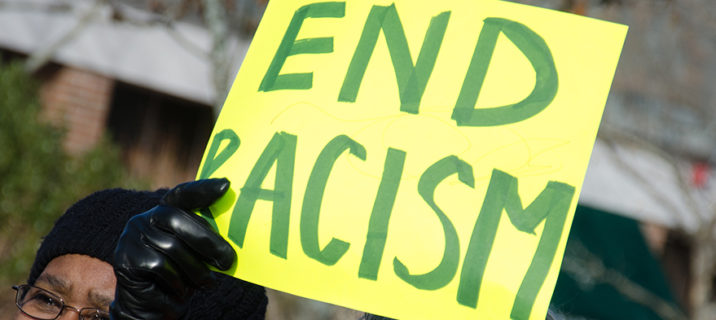Introduction: Why Does Discrimination Persist?
Why do we continue to see patterns of discrimination, suppression, and prejudice against Black Africans? This lingering hostility is not a coincidence but the result of centuries of systematic efforts to undermine Black Africans’ historical and cultural significance.
From their pivotal role in early civilization to their remarkable physical and intellectual strengths, Black Africans have been targets of envy and deliberate marginalization. This article dives deep into the origins of this prejudice, its historical underpinnings, and why these sentiments persist in modern times.
Historical Superiority of Black Africans
The Cradle of Civilization
Fossil records and historical evidence clearly indicate that humanity’s origins lie in Africa. The first humans emerged on this continent, developed cognitive abilities, and laid the foundation for civilization.
Long before other races appeared, Black Africans thrived, building societies that were advanced for their time. These early contributions to human development created a legacy that, ironically, became a source of resentment among non-Blacks.
Wealth and Prosperity in Ancient Africa
Black Africans were not only pioneers of civilization but also stewards of immense wealth. Kingdoms like Ghana, Mali, and Songhai flourished with gold, salt, and other valuable resources. Arabic scholars like Al-Fazari documented Africa’s opulence, calling Ghana “The City of Gold.” This unparalleled wealth sparked jealousy, leading to attempts to diminish African achievements through colonization and exploitation.
Also Read: Black Inventors and Their Inventions That Changed the World
The Origins of Prejudice and Systematic Suppression
The Fabrication of Inferiority
To counter Black Africans’ evident physical and intellectual superiority, non-Blacks propagated the myth of African inferiority. This campaign used physical features—dark skin, full lips, and textured hair—as tools to label Black Africans as primitive. These stereotypes became deeply entrenched, creating a false narrative of backwardness that justified slavery and colonization.
Rewriting Power Dynamics
Non-Black societies, especially European colonizers, redefined societal values to exclude Black Africans from power. Physical strength, once a symbol of capability, was branded as inferior to intellectual and cultural “delicacy.” This redefinition ensured that Black Africans were seen as unfit for leadership, further marginalizing them in global power structures.
Key Threats Perceived by Non-Blacks
Physical Superiority
Historically and today, Black Africans have demonstrated exceptional physical prowess. This strength has been both admired and feared. Non-Blacks recognized that allowing Black Africans equal opportunities would result in dominance in various spheres. To counter this, systems were created to limit their participation, from sports to politics.
Also Read: Black slave Thomas Fuller, known as the Human Calculator
Genetic Annihilation
One of the most profound fears among non-Blacks was the concept of genetic annihilation. Biologically, genes with greater survival potential dominate.
Marriages between Black Africans and non-Blacks often resulted in children with predominantly African traits, which many saw as a threat to their genetic lineage. This fear led to prohibitions against interracial unions and policies that classified individuals with even “one drop” of Black blood as inferior.
Africa’s Abundance of Natural Resources
Africa remains the most resource-rich continent, boasting vast reserves of oil, gas, gold, diamonds, and more. European colonizers exploited these resources, leaving African nations impoverished while enriching their own. Even today, nations like France control significant portions of African wealth. This ongoing exploitation underscores the continued fear of African nations regaining control over their resources.
Also Read: Top 10 Must-Read Books by Black Authors
Modern Manifestations of Historical Prejudice
Tokenism in Representation
In modern times, efforts to appear inclusive often result in tokenism. From sports teams to corporate boards, having one Black individual is presented as proof of equality. However, this superficial inclusion rarely translates to genuine power or representation.
Subconscious Bias in Society
Centuries of propaganda have left a lasting impact. Non-Blacks often subconsciously perceive Black Africans as threats due to ingrained stereotypes. This bias manifests in various forms, from workplace discrimination to systemic inequalities in education and healthcare.
Breaking the Cycle of Discrimination
Education and Awareness
To dismantle these prejudices, it is essential to educate people about Africa’s true history and contributions. Highlighting the achievements of ancient African civilizations and debunking stereotypes can foster a more accurate understanding of Black Africans’ role in global history.
Empowerment Through Resource Control
African nations must reclaim control over their natural resources and use them to empower their populations. Economic independence is a crucial step toward dismantling the structures that perpetuate inequality.
Challenging Stereotypes in Media
Media plays a significant role in shaping perceptions. Promoting positive and accurate representations of Black Africans can counteract centuries of negative stereotypes. This includes showcasing African innovations, culture, and contributions to global progress.
Also Read: Ten Trailblazing Black Historical Figures Who Shaped the World
Conclusion: A Call for Justice and Equality
The discrimination, suppression, and prejudice against Black Africans are deeply rooted in history. From their unparalleled contributions to early civilization to their modern-day struggles, Black Africans have continually faced challenges born out of envy and fear. Addressing these issues requires a collective effort to educate, empower, and advocate for equality.
By acknowledging the truth of history and working toward systemic change, we can begin to heal the wounds of the past and create a more inclusive future. Africa’s story is not one of victimhood but of resilience and triumph. It is time the world recognizes and celebrates it.
